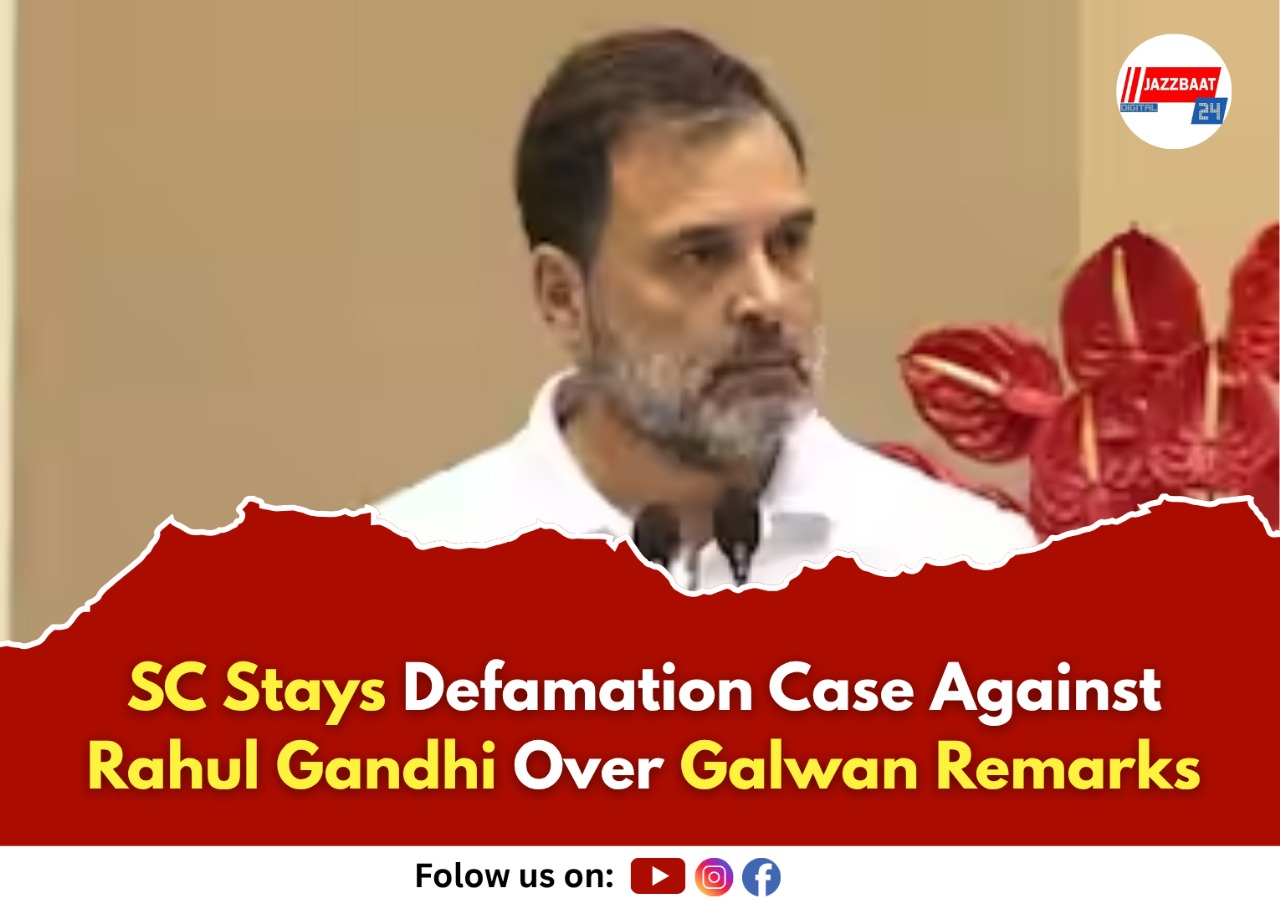
New Delhi:
The Supreme Court on Monday stayed proceedings in the criminal defamation case against Congress leader and Leader of Opposition Rahul Gandhi, relating to his comments on the Indian Army during the 2020 Galwan Valley clash. However, the apex court bench, while granting interim relief, expressed clear disapproval of the nature and content of Gandhi’s statements.
The defamation complaint, filed by former Border Roads Organisation Director Uday Shankar Srivastava, accuses Gandhi of defaming the Indian Army through remarks made during his Bharat Jodo Yatra on December 16, 2022. The complaint refers to Gandhi’s claim that the Chinese army was “thrashing” Indian soldiers in Arunachal Pradesh, alleging that such comments were derogatory and demoralising to the Indian forces and their families.
A bench comprising Justice Dipankar Datta and Justice AG Masih issued the interim stay for three weeks while hearing Gandhi’s Special Leave Petition challenging the Allahabad High Court’s May 29 order, which had refused to quash the defamation proceedings initiated by a court in Lucknow.
During the hearing, Senior Advocate Dr Abhishek Manu Singhvi, representing Gandhi, argued that an opposition leader must have the freedom to raise difficult questions. “If he can’t say these things which are published in the Press, he can’t be a Leader of Opposition,” Singhvi said.
Justice Datta, however, questioned the platform chosen for such statements. “Whatever you have to say, why don’t you say it in Parliament? Why do you have to say this in social media posts?” he asked. He went further, challenging the factual basis of Gandhi’s claim that 2,000 square kilometres of Indian land had been taken by China. “Were you there? Do you have any credible material? Why do you make these statements without any… If you were a true Indian, you would not say all this,” the judge said firmly.
In response, Singhvi stated that “it is also possible that a true Indian will say that our 20 Indian soldiers were beaten up and killed and that it is a matter of concern,” referencing the Galwan incident.
The court, however, insisted that such sensitive issues must be addressed responsibly. “When there is a conflict across the border, is it unusual to have casualties on both sides?” Justice Datta asked. Singhvi clarified that Gandhi’s concern was over the lack of transparency and public disclosure by the government, not an attempt to undermine the armed forces.
The bench also discussed legal procedural lapses, including the non-compliance with Section 223 of the Bharatiya Nagarik Suraksha Sanhita (BNSS), which mandates prior hearing of the accused before a court takes cognisance of a criminal complaint. Justice Datta noted that this point had not been raised in the High Court, a fact Singhvi conceded.
The defamation case stems from remarks Gandhi made following the December 9, 2022 clash between Indian and Chinese troops in Arunachal Pradesh. According to the complainant, Gandhi’s repeated assertion that the Chinese army was overpowering Indian soldiers and the press was complicit in silence, constituted a direct attack on the Army’s honour and morale.
Justice Subhash Vidyarthi of the Allahabad High Court, in his earlier ruling, held that while freedom of speech is protected, it does not extend to defamatory statements about national security forces. The Lucknow MP-MLA court had in February summoned Gandhi in connection with the complaint.
While the Supreme Court has stayed the proceedings for now, it has issued notice to all parties and will consider the matter in detail at the next hearing. The case continues to raise broader questions about the limits of political speech, especially on matters involving national security and the armed forces.